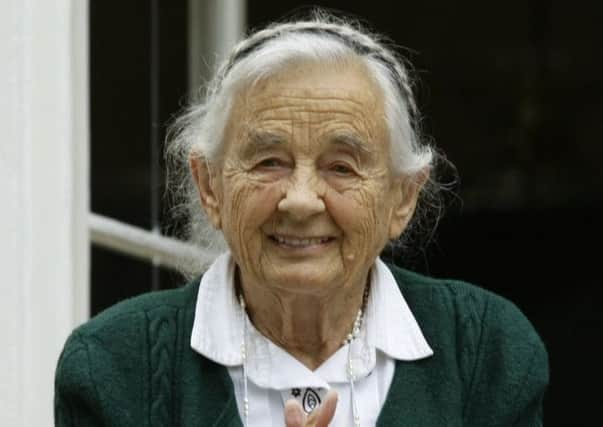Obituary: Maria von Trapp, member of the von Trapp family singers


Maria von Trapp was the last surviving member of the family that inspired both the stage musical and the 1965 film, The Sound of Music.
She was the second-oldest daughter of Captain von Trapp by his first wife and was portrayed as Louisa in the musical and film. It was Maria’s ill-health as a child that convinced her father to employ a nun to teach her at home. Maria had contracted scarlet fever and was too sickly to even walk to school and the doctor advised that she remain at home. Before long the nun had grown so attached to the other children that she taught them music. “She came to us as my teacher” Maria once recalled, “and after three years she became our second mother.”
Advertisement
Hide AdAdvertisement
Hide AdBoth Maria’s parents were musical: her mother had played the violin and the piano while her father played the violin, accordion and mandolin. Maria, with her brothers and sisters, would play Viennese folksongs with their father leading on the violin.
By 1935 the family was facing severe financial problems as their investments had deteriorated in the Wall Street Crash, and the von Trapp family started to sing in public. To survive, the family dismissed all their servants and moved into the top floor of their substantial home near Salzburg, in order to rent out empty rooms to students. The famous soprano Lotte Lehmann heard the children singing and she encouraged them to pursue music professionally.
After the annexation of Austria by the Nazis in 1938, life for Captain von Trapp became fraught. He was a staunch Austrian patriot and opponent of Adolf Hitler. So his situation worsened when the he received his call up papers for the German navy.The family toured widely and in 1938 on a visit to Munich, they ate in the same restaurant as the Führer. In September of that year, Captain von Trapp arranged to leave Austria and bought tickets for the entire family to travel to Italy and on to the United States. Their home was requisitioned by the Nazis and used by Heinrich Himmler. Maria did not return to Austria until 2008, when she stayed in her old house, which was by then a hotel. Playing the guitar in the garden she said: “I’m back home again.”
In 2003, Maria told the real story of their departure from Europe. “We did tell people that we were going to America to sing. And we did not climb over mountains with all our heavy suitcases and instruments. We left by train, pretending nothing.”
The Trapp Family Choir gave their debut performance in the Town Hall of New York City, of which the the New York Times wrote: “There was something unusually lovable and appealing about the group.” To sound more American, the name was changed to the Trapp Family Singers and they toured worldwide.
In 1944, Maria became a US citizen and by the mid-1950s the group had cut many records for RCA. Captain von Trapp died of cancer in 1947 and in 1957 the group ceased performing.
In 1956 Maria, along with her stepmother and a brother and sister, carried out missionary work in New Guinea and while the rest of the family returned to manage the Trapp Family Lodge in Vermont, Maria remained in New Guinea for almost thirty years.
When the show hit Broadway the von Trapps became public property, although they had certain reservations about their portrayal. The father was never the strict disciplinarian portrayed and whether he and his second wife lived the romance of the musical is in doubt – she once confessed, “I really and truly was not in love. I liked him but didn’t love him. However, I loved the children.”
Maria’s brother Johannes von Trapp said of his sister yesterday, “She was a lovely woman who was one of the few truly good people. There wasn’t a mean or miserable bone in her body.”